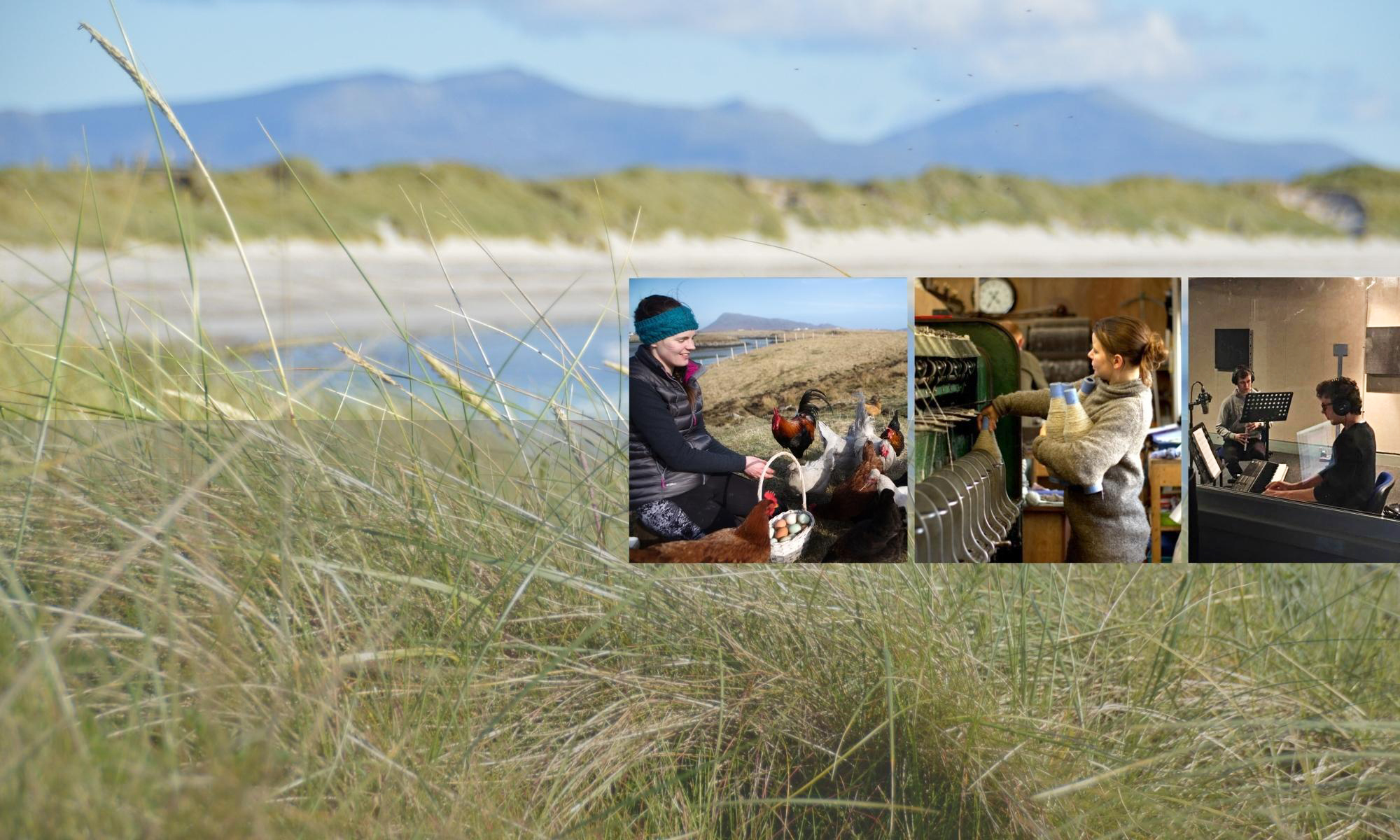The results of the Northern Periphery and Arctic research project, to be launched on June 4th, argue that rural and island communities need to be seen in a new light following Covid-19. While the health and economic disruptions caused by Covid-19 are undeniable, on balance many rural and island areas have performed relatively well during the pandemic by drawing on a wide range of resilience factors both for health and the economy.
“We need to redefine how we view rural and island communities, and change policy accordingly,” says Theona Morrison, Director of CoDeL and Acting Chair of Scottish Rural Action.
Evidence for this comes not only from Scotland and Ireland, but also from Finland, Sweden, the Faroe Islands, Iceland, Greenland and Canada through the research funded by the (European) Northern Periphery and Arctic Programme (Covid-19 Response Call). It was delivered by 12 partners from Canada to Finland (universities and research institutes, public, private and third sector organisations) and led by CoDeL from the Outer Hebrides in Scotland. Together they make 18 recommendations for a new approach to policy and action for rural and island communities.
“One of the most stimulating, visionary but also evidenced and well informed documents I’ve come across in relation to post-Covid.” David Bryan, Head of Sustainable Business, Social Enterprise Academy, Scotland
You can read the Citizen Summary here.
Rural and island communities have benefited from their geography, including their remote and sparsely populated regions, and their access to nature. Cohesive communities and responsive local governance have found local solutions, for example to implement test and trace systems effectively, to shut down community transmission swiftly and to vaccinate local populations rapidly. There has been extensive community engagement and participation, volunteering and generosity expressed in practical action to help the most vulnerable in particular.
Economic responses in rural and island communities have been characterised most by flexibility and adaptation, innovation and creativity, collaboration and committed local customers. Over half of 62 entrepreneurs surveyed consider Covid-19 to have brought about new business opportunities. Technology companies across the Northern Periphery, many of them small and micro businesses, innovated or adapted their products, and expanded their markets during the pandemic (see Project C here). And regions in Iceland and Atlantic Canada have continued tourism activities with a switch to domestic tourism.
Thomas Fisher, the Project Manager and Director at CoDeL, says “the research is striking because of the weight of evidence it delivers across many different regions, from Finland to Canada, and across many different sectors, in 10 reports based on extensive desk research, 80 interviews and almost 30 case studies.”
“Above all,” he continues, “our analysis is rooted in the lived experience and voices of rural and island communities during the pandemic. The analysis is not seen through the lens of researchers who have little experience of life in remote areas, but was conducted and evaluated by researchers, many of whom themselves live in rural and island communities. It is they who are challenging traditional perspectives on peripherality, calling for the very concept of peripherality to be redefined.”
“We need to rethink both the concept of peripheries as well as the idea of the economy. I think that with all the case studies the research rigorously shows that there is no other way to think, and act. It is just the sort of academia we need now (and have needed before).” Prof Eeva Jokinen, Department of Social Sciences, Social and Public Policy, University of Eastern Finland
The key findings, recommendations and summaries from the report can be read here.
Policy-makers are taking note. The NPA programme has themed their next annual event in October under Redefining Peripherality. The Nordic Council of Ministers is funding four Nordic Talks by CoDeL and Nordregio on the same theme.
“The resilience shown by rural and remote communities during Covid-19 has been a testament to the inherent engagement, cohesiveness and flexibility of these communities. The pandemic has generated a renewed vigour in re-imagining life on the periphery as a very attractive place for people and businesses to come, work and live.” Liam Glynn, Professor of General Practice, School of Medicine, University of Limerick, Ireland
And people outside of these communities have noticed too. Covid-19 has radically shifted how people view the attractiveness of rural living. Many are fleeing cities and buying properties in rural areas and islands. This is leading to a critical housing crisis, excluding many local and young people from being able to live in these areas, the next “economic clearance” according to young Gaels.
“But these changes were already taking place before the pandemic”, argues Theona Morrison. “CoDeL research back in 2018 on young people returning and settling in Uist, the Islands Revival blog and declaration of 2019, and pre-Covid evidence gathered by this research project shows clearly how demographic trends were already changing. The pandemic has accelerated these trends.”
The research on the economic impacts brought together the following partners, as well as two external experts, Steve Westbrook and Associates, Scotland (economist in the Highlands and Islands) and Katinka Svanberg, Sweden and Melbourne University (human rights):


